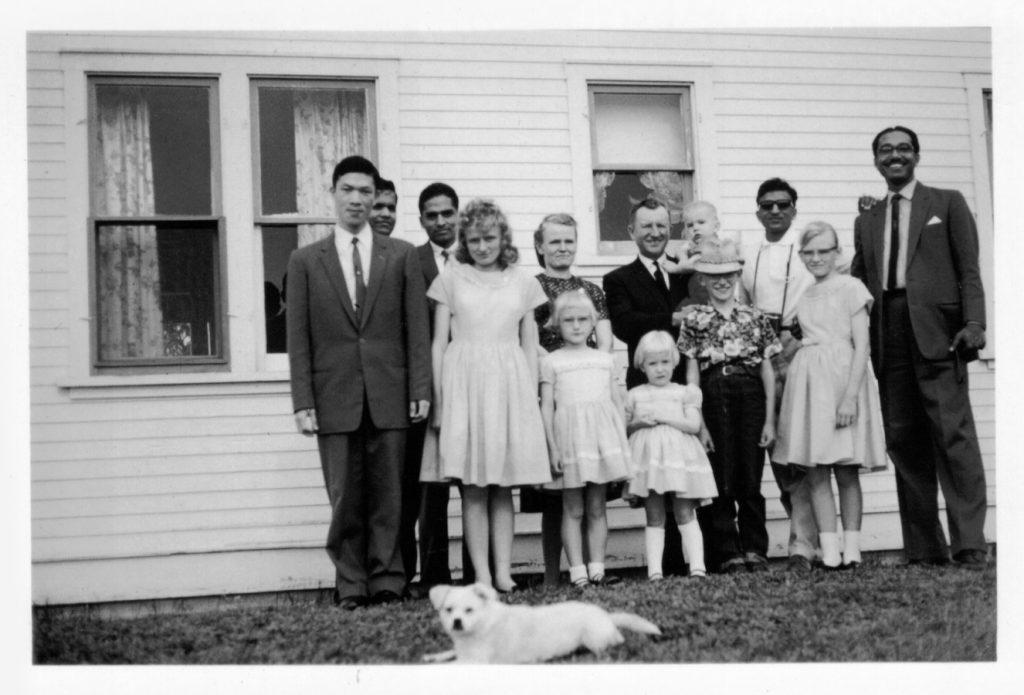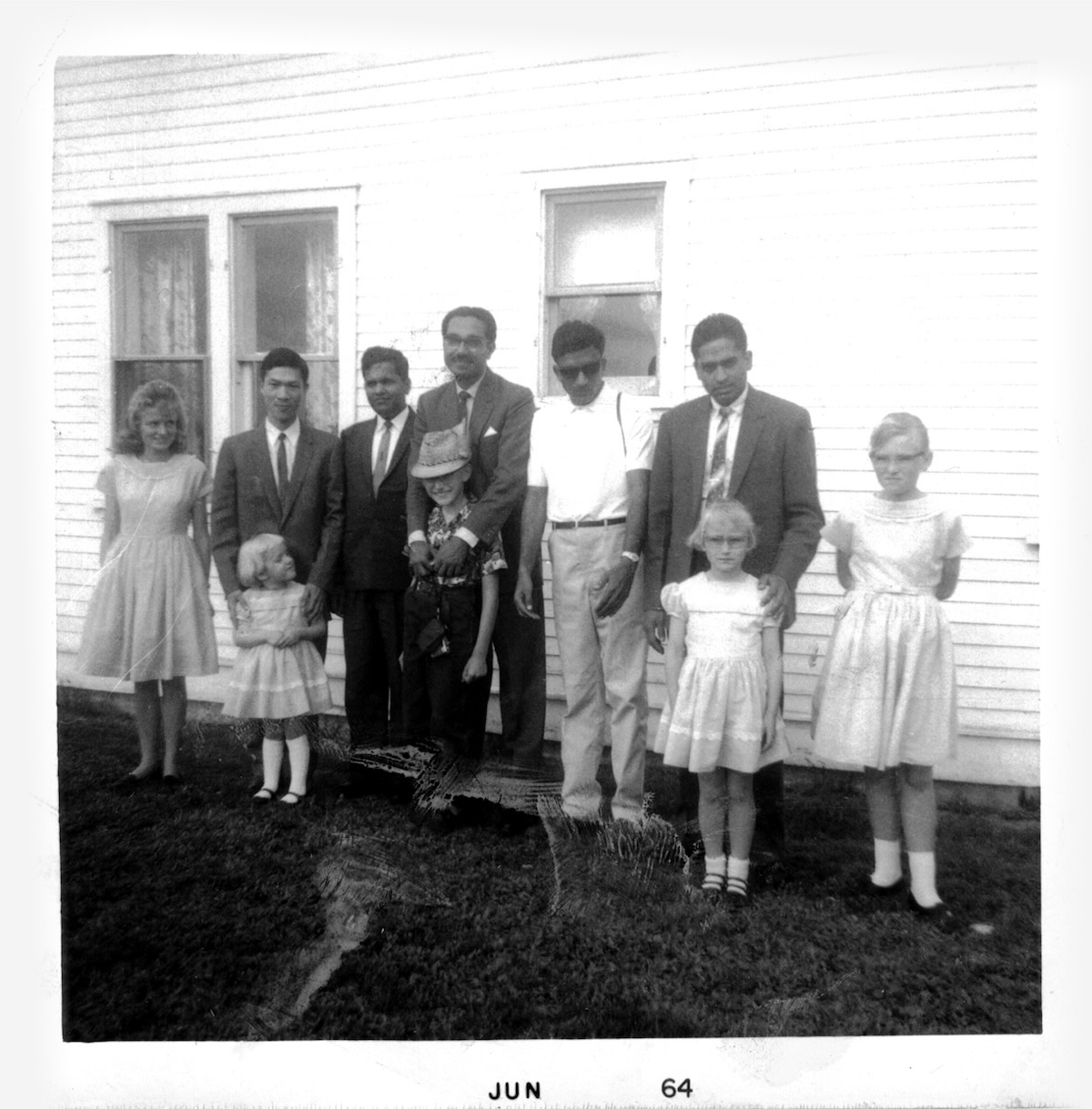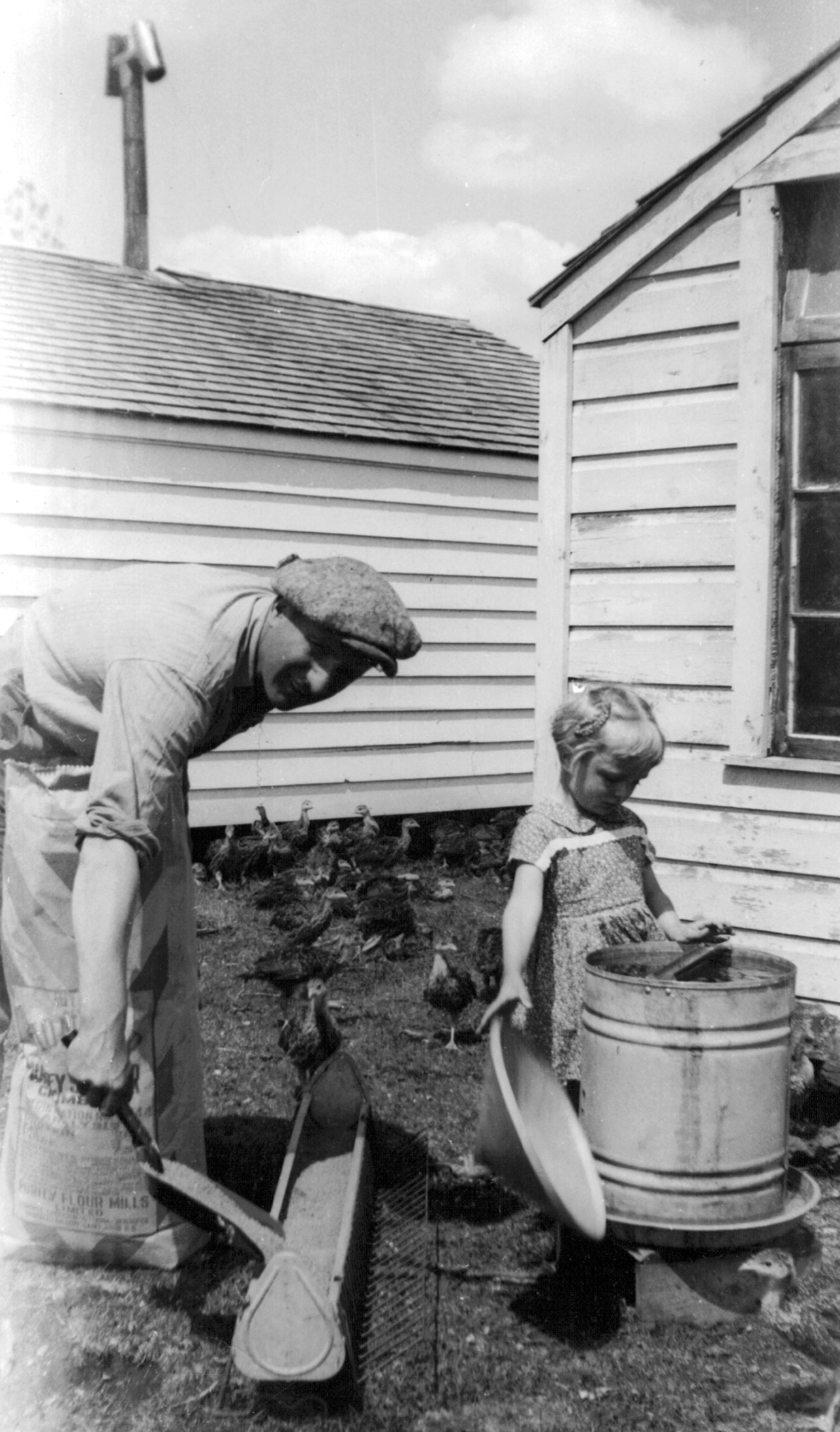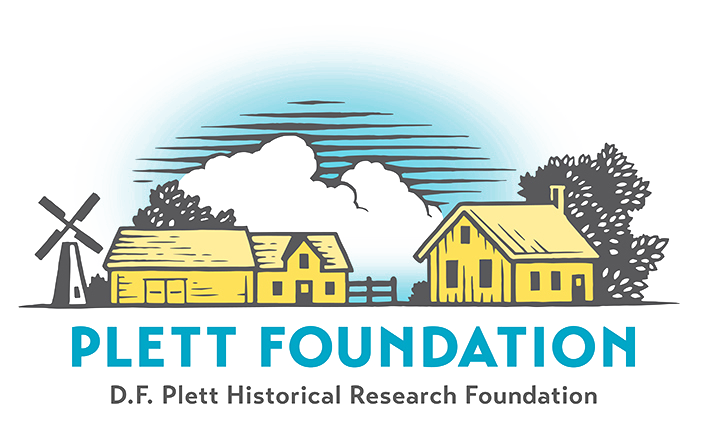A Blumenort Exchange: A Golden New Testament for a Green-Coloured Qur’an
Royden Loewen
In her diary entry for Sunday, June 21, 1964, my mother, Gertie (Klassen) Loewen, recorded the following: “Baptismal class took place this morning.” It was a perfunctory note by a farm housewife about an annual springtime ritual in the rural Blumenort Evangelical Mennonite Church (EMC) north of Steinbach, Manitoba. But then she added this unusual note for the afternoon: “Dave [my dad] went right after dinner [the noon meal] for 5 men from the university [of Manitoba]. They were from India and Pakistan and Formosa. Dave took them back after lunch [i.e., Faspa].”
My two older sisters, Beverly (now Doerksen) and Judy (now Goertzen), and I, then age nine, vividly recall these men. They were visiting agronomists who had been introduced to Dad when Rod Siemens, the local ag rep, identified our farm as a model turkey operation to the Faculty of Agriculture at the University of Manitoba. An earlier diary entry for June 8 noted that “about 45 university students came out to our turkey farm” for a tour, and it is possible that the five Asian agronomists had been part of that group.
In any case, a friendly exchange had been developed. A family photo taken that Sunday afternoon has all of us smiling, but a bit stilted. In an accompanying photo the Pakistani man has draped his arms around me, and two of the men are giving a slight embrace to my little sisters, Bonita and Debbie. My sister Beverly recalls other details about that day, which speak to borders being crossed. My mother had been told that because of religious scruples, the man from Pakistan would not eat pork and the men from India would not eat beef. So, dutifully she made both, beef and pork, and placed both in a single dish. Alas, having done so, the Muslim and the Hindus declined to eat their designated meat. They both did eat her salads and desserts, and Dad took them back to Winnipeg without incident.

My father, despite his Grade 7 education, was a deeply curious man who loved meeting non-Mennonites. He was clearly enthralled with these Asian agronomists, and just three days later, on Wednesday, June 24, he again “went to Winnipeg to get a couple of men,” this time the “one from Formosa and one from India, to tell the children at school about their countries.” And then, Mom noted, “we took them back at night.” Clearly they were at our house again for a meal, and clearly Mom approved of the event as she travelled with Dad again.
But the encounter was not merely cultural; indeed, any form of multiculturalism was likely of secondary concern. Dad, as a good EMC, also had a strong sense of evangelical mission. Six weeks after this event, on Sunday, August 2, Dad again travelled to Winnipeg: as Mom wrote, “we all went to Sunday School and church service … Dave went for the Indian men at noon.” I assume that “Indian” had now become shorthand for the same five men. And now it seems Mom had learned her lesson, as the meal included “potato salad, cabbage salad, tomatoes, cucumbers, garlic sausage, cold roast turkey, doughnuts, banana cake, matrimony cake, etc.” We will never know what the “etc.” was, and the garlic sausage remains a mystery – at least it wasn’t pork or beef roast.
On this occasion Dad seemed to have had an agenda, for he invited Mr. Henry D. Reimer, presumably a missionary, to drop by at five o’clock, after Faspa, “to show slides from India.” Dad also invited his close friend Alvin Doerksen, about to head out to Gouldtown, Saskatchewan, on an EMC home mission assignment with his family, to come and see the slides. There is no reason given as to why men from India should be shown slides about India by a southeastern Manitoba Mennonite, unless the slides were about mission work in India. Evidently the day was energizing, as my mom once again agreed to go “along when Dave took the men back,” a two-hour commitment. They even returned home in time to pick up the oldest four of her six children for Jugendverein, the monthly Sunday fellowship night at our church.
The visits with these men were not only bookended by church events, they were encased in faith and mission. My father, a successful farmer who had chosen not to move to Mexico with his parents and siblings in 1950, was also an overtly evangelical man. He cared about these men’s souls. An event that I can only remember and is not recorded in my mom’s diary is of a long summer evening with these very men in our farmhouse living room. Dad invited the men over to hear Rev. Ben Hoeppner, the locally renowned Steinbach Bible Institute instructor, outline the gospel to them. As a nine-year-old, I recall distinctly hearing about the country of Formosa and the tradition of Confucianism, as well as the country of East Pakistan and the religion of Mohammedanism. I can still hear Rev. Hoeppner, a beloved and excruciatingly sincere man who would later be my Grade 12 Mennonite history teacher, inside that crowded living room, expositing the Bible.

But it is a memory of the hours before the event that is at least as clearly etched in my memory. At about four o’clock that afternoon, my dad rushed inside from the barn and exclaimed to my mom that these men were coming over to hear Rev. Hoeppner but we had no Bibles to give them. I remember Dad on the phone with the Gideons in Steinbach and being eventually directed to one Margaret (Friesen) Loewen (i.e., Mrs. Jacob T. Loewen, by happenstance my wife Mary Ann’s grandmother), who apparently was the custodian of wooden crates of small, soft-covered, gold-coloured New Testaments. Mrs. Loewen assured Dad that she would have a crate ready for him if he came over. Dad changed out of his barn clothes and within the hour was back home.
He was exuberant. This Mrs. Loewen had turned out to be a complete saint; she had been on her knees praying for these men’s souls from the time Dad hung up to the moment he knocked on her door. And when Dad had exclaimed what a prayer warrior she was, she corrected him, saying that in comparison to our Catholic neighbours in La Broquerie, no Mennonite could claim to be a prayer warrior; the Catholics knew how to pray! Encouraged by Mrs. Loewen and Rev. Hoeppner, Dad handed out New Testaments that evening to the men in the room. My sister Judy still remembers Rev. Hoeppner standing in the middle of the room, smiling with these men at the end of the evening.
This was also the moment that something stupendous happened in this rural EMC home in Blumenort. Having received his copy of the New Testament, the Muslim from East Pakistan gifted my father a hard-covered, green-coloured, English translation of the Qur’an. It would become part of my dad’s small library. In fact, it was there among his collection of three dozen or so books until shortly before Dad died in November 1998. No one from our family now knows what happened to it.
But why did the Qur’an stay there, for three or more decades? Checking my mom’s diary, it is apparent that my parents were deeply involved in the EMC – Dad was a conference delegate in 1964, a local school trustee, a member of the conference education committee, and a board member of the local Co-op, and Mom was an integral part of the local sewing circle. These neighbourhood and kin networks were exceedingly vibrant. My parents often entertained visitors who frequently arrived unannounced at noon and stayed till 7 p.m. They also readily crossed denominational lines, visiting the Bergmans and Wiebes, Blumenort’s two Mennonite Brethren families, or dropping by the Harders, who were Old Colonists from Mexico, or taking out Miss Penner or Miss Letkeman, our local teachers from Winkler and Lowe Farm, and by happenstance of General Conference affiliation. But such border-crossings pale in comparison to the evening in 1964 when my dad took a Qur’an in exchange for a New Testament, and respected it with a place in his library.
Perhaps he seemed comfortable with the Qur’an was because he also held a broader view of society. When my father asked a Bible school teacher to do the talking it wasn’t that he himself shied from speaking in public. Indeed, a year after the first recorded visit by these Asian agronomists, on June 16, 1965, my mom wrote that “Dave was asked over to the Co-op to speak about Co-ops to a group of university men from India and Pakistan.” Again, there is no elaboration; the morning of the 16th my dad “sprayed the fields at home” and the morning after the Co-op meeting he “was in Beausejour all day,” where we had a 240-acre satellite farm.

Evidently Dad’s fervour for sharing the gospel in the form of handing out Bibles never took off. Indeed, a wooden crate of twenty or so gold-coloured New Testaments, minus about five, was in my parents’ house when we moved my recently widowed mom out to Oakwood Manor in Blumenort in the spring of 1999. He would support foreign missions and food aid programs – the Canadian Bible Society, the EMC Missions Auxiliary, the Canadian Foodgrains Bank – and he founded our church’s men’s prayer breakfast, but I don’t recall that he was ever very good at personal evangelism.
I do recall that he had a genuine interest in non-Mennonites and loved when English, Ukrainian, French-Canadian, or Jewish sales folk dropped by the farm. And a not unusual entry in my mother’s diary was the note that “Dave brought home three men” for lunch. And over the years there were other foreigners – from India, Jordan, Germany – who graced our home with repeated visits.
Significantly, my mom put up with this penchant of his. Indeed, Mom came into her marriage with her own sense of the outside world. Her diary, which she kept continuously until her death at ninety-three in June 2020, begins on May 1, 1944, when she was seventeen. The first line announced that “at present I’m working for Mrs. Medovy at 366 Niagara Street, Winnipeg.” It turns out that Mom’s employer was the wife of the renowned Jewish-Canadian pediatrician Dr. Harry Medovy, a public health guru often credited for having introduced fluoride in Winnipeg and the future head of pediatrics at the University of Manitoba. My mother was compelled to work in Winnipeg as she hailed from one of the poorest homes in Blumenort; my father, from one of the more well-to-do, was attracted to her, I am sure, because he loved any sense of the wider world, no matter the religious dimension.
Royden Loewen is a senior scholar at the University of Winnipeg, and held the Chair in Mennonite Studies for twenty-four years. He is the author of numerous books on Mennonite history.
